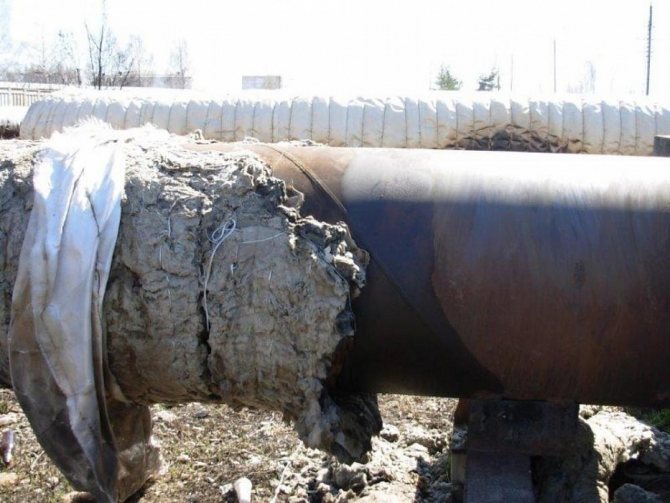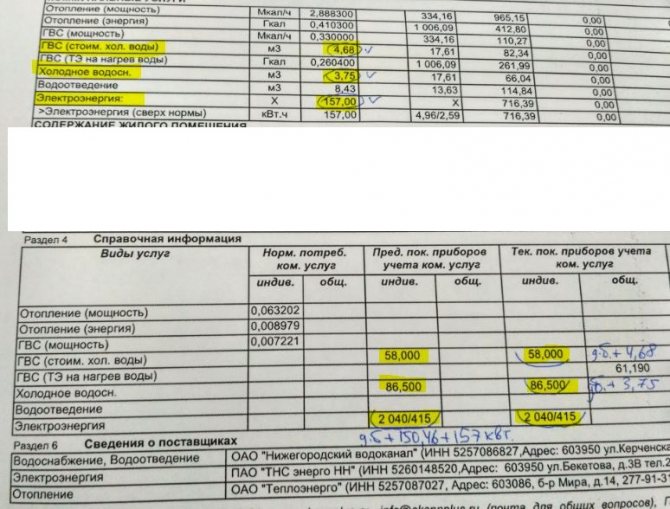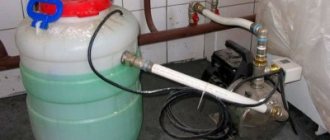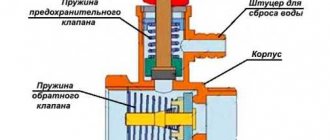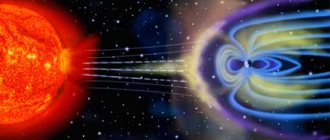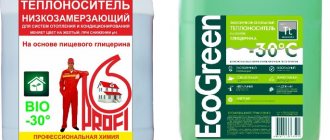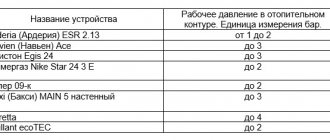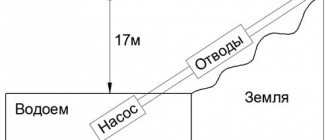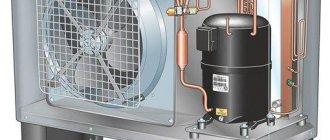Heat accumulators
While it is difficult for me to imagine how the heat accumulator will be arranged in the wonderful future, but today such devices work as follows. A substance or material with a high heat capacity, such as water, heats up, as a result of which energy is accumulated. There are materials that we simply heat, like water, and there are so-called phase change materials. The fact is that during a phase transition - for example, when water freezes or wax melts in a narrow temperature range - more energy can be accumulated than with simple heating or cooling.
There are also batteries that allow, for example, to absorb or release energy in a given temperature range due to the implementation of a chemical reaction, and not for one specific temperature. In particular, Glauber's salt undergoes reversible dehydration reactions with heat absorption (when heated) and crystallization with its release when cooled at 35 ° C. The modification of the composition allows these reactions to be carried out at a temperature of about 23 ° C - the most comfortable temperature for humans, which allows the temperature to be stabilized during the "day-night" cycles. The heat that we want to accumulate or recover has a low potential. The smaller the difference between the required temperature and the temperature of the coolant, the lower the potential. The lower the potential, the harder it is to accumulate such energy.
Now the area of our scientific interests is chemical heat accumulators. That is, it is an attempt to convert heat into chemicals that have a higher potential than water or paraffin. They can be various salts, crystalline hydrates, oxides, inorganic substances. They must be inexpensive, affordable, non-toxic and non-explosive.
What has the court found?
These circumstances were studied by the Arbitration Court of the Moscow Region, and then - on appeal - by the 10th Arbitration Court of Appeal, when considering the case on the claim of OOO Orekhovo-Zuevskaya Teploset against the HOA Avtoproezd (case No. А41-18008 / 16) to recover arrears on payment for heat energy. The Main Directorate of the Moscow Region “State Housing Inspectorate of the Moscow Region”, the Ministry of Construction and Housing and Utilities of the Russian Federation, and the Ministry of Construction and Housing and Utilities of the Moscow Region were involved in the case as third parties.
In the Decision of 12.12.2016 in case No. А41-18008 / 16 The CA of the Moscow region indicated:
“Having directly, fully and objectively examined the evidence presented by the parties in support of the stated claims and objections, the court came to the following.
As established by the court, on September 26, 2012, the plaintiff and the defendant entered into a Heat Supply Agreement No. 240, according to which the plaintiff is an energy supplying organization, and the defendant is a subscriber.
In accordance with clause 1 of article 539 of the Civil Code of the Russian Federation (hereinafter referred to as the Civil Code of the Russian Federation) under an energy supply agreement, the energy supplying organization undertakes to supply the subscriber (consumer) with energy through the connected network, and the subscriber undertakes to pay for the received energy ...
On the basis of Article 544 of the Civil Code of the Russian Federation, payment for energy is made for the amount of energy actually received by the subscriber in accordance with the energy metering data, unless otherwise provided by law, other legal acts or agreement of the parties.The procedure for payments for energy is determined by law, other legal acts or by agreement of the parties.
In accordance with the provisions of Article 157 of the Housing Code of the Russian Federation (hereinafter - the Housing Code of the Russian Federation), the amount of payment for utilities is calculated based on the volume of consumed utilities, determined by the readings of metering devices, and in their absence, based on the standards for the consumption of utilities approved by state authorities constituent entities of the Russian Federation in the manner established by the Government of the Russian Federation, at rates established by the state authorities of the constituent entities of the Russian Federation in the manner prescribed by federal law.
Part 5 of Article 9 of the Federal Law of July 27, 2010 No. 190-FZ "On Heat Supply" established that tariffs for hot water in open heat supply systems (hot water supply) are set in the form of two-component tariffs using a component for a coolant and a component for thermal energy ...
According to part 9 of article 32 of the Federal Law of December 7, 2011 No. No. 416-FZ "On water supply and wastewater disposal" tariffs in the field of hot water supply can be set in the form of two-component tariffs using a component for cold water and a component for thermal energy in the manner determined by the basis of pricing in the field of water supply and wastewater disposal, approved by the Government of the Russian Federation.
Clause 88 of the Basics of Pricing in the Sphere of Water Supply and Sanitation, approved by Decree of the Government of the Russian Federation No. 406 dated May 13, 2013, stipulates that tariff regulators establish a two-component tariff for hot water in a closed hot water supply system, consisting of a component for cold water and a component for thermal energy.
Thus, the executive authorities of the constituent entities of the Russian Federation in the field of price (tariff) regulation make decisions on the establishment of two-component tariffs for hot water in accordance with the norms of the current legislation.
In order to regulate the procedure for applying two-component tariffs for hot water, by the Decree of the Government of the Russian Federation No. 129 dated February 14, 2020 (entered into force on February 28, 2015), amendments were made to the Rules for the provision of utilities to owners and users of premises in apartment buildings and residential buildings, approved Decree of the Government of the Russian Federation dated May 6, 2011 No. No. 354 (hereinafter - Rules No. 354), and the Rules for Establishing and Determining the Norms for the Consumption of Utilities, approved by Decree of the Government of the Russian Federation No. 306 dated May 23, 2006 (hereinafter - Rules No. 306).
Clause 38 of Regulation No. 354 stipulates that in the case of establishing two-component hot water tariffs, the amount of the payment for the hot water utility service is calculated based on the sum of the cost of the component for cold water intended for heating in order to provide the hot water utility service, and the cost of the component for thermal energy used to heat cold water in order to provide utility services for hot water supply.
In accordance with paragraph 42 of Regulation No. 354, in the case of establishing two-component tariffs for hot water, the amount of payment for utility services for hot water supply provided to the consumer for the billing period in a residential building equipped with an individual or common (apartment) meter is determined in accordance with formula 23 Appendix No. 2 to Regulation No. 354 based on the readings of hot water meters and the rate of heat energy used for water heating, and in the absence of such a meter, based on the rate of hot water consumption and the rate of heat energy used for water heating.
At the same time, Regulation No. 354 does not provide for the use of heat energy as a public service, which corresponds to the provisions of Part 4 of Article 154 of the RF LC.
Considering the above, Regulation No. 354 provides for the distribution of heat energy used for heating cold water in order to provide utility services for hot water supply, within the framework of the standard for the consumption of heat energy for heating water in order to provide utility services for hot water supply.
In this regard, the relevant amendments made to Regulation No. 306 provide that the standard for the consumption of utility services for hot water supply is determined by establishing a standard for the consumption of hot water in a residential building and a standard for the consumption of thermal energy for heating water for hot water supply.
So, according to clause 7 of Regulation No. 306, when choosing a unit of measurement for consumption standards for hot water supply (hot water), the following indicators are used:
in living quarters - cubic meters meter of cold water for 1 person and Gcal for heating 1 cu. meters of cold water or cubic meters. meter of hot water for 1 person;
for general house needs - cube. meter of cold water and Gcal for heating 1 cu. meters of cold water per 1 sq. meter of the total area of the premises that are part of the common property in an apartment building, or cube. meter of hot water for 1 sq. meter of the total area of the premises that are part of the common property in an apartment building.
This principle ensures a fair distribution of heat energy for heating a cubic meter of water between all consumers, depending on the volume of hot water consumption. In this regard, the procedure for determining the amount of payment for utility services for hot water supply, established by Regulation No. 354, fully complies with the requirements of the RF Housing Code and is established taking into account the exclusion of an unfair financial burden on citizens.
In this way, regardless of the presence of a collective (common house) metering device for heat energy in the hot water supply system of an apartment building, regardless of the heat supply system (hot water supply) (open or closed), as well as regardless of the season (heating or non-heating), the amount of heat energy used for water heating, is determined in accordance with the norms for the consumption of thermal energy for heating water for hot water supply established in accordance with the procedure prescribed by law.
Accordingly, in the presence of standards for the consumption of thermal energy for heating hot water, the readings of metering devices that measure thermal energy used for hot water supply are not taken into account either in settlements with consumers or in settlements with resource supplying organizations.
There is no other procedure for determining the amount of payment for utility services for hot water supply in the case under consideration by Regulation No. 354.
Civil rights and obligations of a managing organization or an association of homeowners or a housing cooperative or other specialized consumer cooperative (hereinafter referred to as a partnership, a cooperative) to make payments for the resources necessary for the provision of utilities arise from resource supply contracts concluded in the manner prescribed by the Rules, mandatory when a managing organization or a homeowners' association or a housing cooperative or other specialized consumer cooperative concludes agreements with resource supplying organizations approved by the Government of the Russian Federation of February 14, 2012 No. 124 (hereinafter, respectively, - Resolution No. 124, Rules No. 124).
According to subparagraphs "d", "f" of paragraph 17 of Rules No. 124, the procedure for determining the volumes of the supplied utility resource, the procedure for paying for utility resources are essential terms of the resource supply agreement.
Wherein In conjunction with the requirements of Regulation No. 124, when concluding a resource supply agreement, the Requirements for making payments for resources necessary for the provision of utilities, approved by the Government of the Russian Federation dated March 28, 2012 No. 253 (hereinafter referred to as the Requirements), shall also be applied.
Clause 4 of the Requirements establishes that the funds received by the contractor from consumers in favor of the resource supplying organizations are to be transferred to pay for the utilities.
At the same time, clause 5 of the Requirements provides that the amount of payment of the utility contractor due to the transfer in favor of the resource supplying organization supplying a specific type of resource is determined depending on the payment by the consumer of the corresponding utility service in full amount specified in the payment document, or in case of partial payment, which fully corresponds with the above-mentioned norms of Regulation No. 124.
Based on the above, the amount of payment of the utility contractor in favor of the resource-supplying organization is to be determined taking into account the amount of funds received from the consumers of utilities, as well as taking into account the volume of utility resources in the event that the resource-supplying organization supplies a utility resource of inadequate quality or with interruptions exceeding the established duration ...
In addition, managing organizations (partnerships, cooperatives), being the executors of utilities in an apartment building, acquire from resource-supplying organizations a utility resource not for resale, but to provide an appropriate utility service to consumers and pay for the amount of utility resource consumed in such an apartment building from payments received from consumers for a utility service.
In accordance with the Decision of the Supreme Court of the Russian Federation dated June 8, 2012 No. AKPI12-604, according to which, within the framework of Resolution No. 124, the managing organization, partnership or cooperative are not economic entities with independent economic interests that differ from the interests of residents as direct consumers of utilities. services. These organizations carry out activities for the provision of utilities on the basis of a management agreement for an apartment building and pay for the amount of utility resources supplied under a resource supply agreement only from the received payments from consumers. In this situation, the amount of payment for a utility resource under a resource supply agreement should be equal to the amount of payment for a utility service paid by all consumers of utility services in accordance with the Rules for their provision.
Taking into account the above, regardless of the agreement, the parties are obliged to follow the peremptory norms that govern the procedure for settlements for the provided utilities.
According to clauses 10, 11 of part 1 of article 4 of the Housing Code of the Russian Federation, relations regarding the provision of utilities, payment for housing and utilities are regulated by housing legislation.
In accordance with the provisions of Article 8 of the Housing Code of the Russian Federation, housing relations related to, inter alia, the use of engineering equipment, the provision of utilities, the payment of utility bills, the relevant legislation is applied, taking into account the requirements established by the Housing Code of the Russian Federation.
In view of the above, when concluding a resource supply agreement with persons managing an apartment building, and establishing conditions in it, including those regulating the procedure for terminating the supply of the corresponding type of utility resource to an apartment building, it is necessary first of all to be guided by the norms of housing legislation, in particular, Rules No. 124, taking into account the provisions Regulation No. 354.
Clause 5 of the Requirements establishes that the amount of the contractor's payment due to the transfer in favor of the resource supplying organization supplying a specific type of resource is determined in the amount of the payment for a specific utility service specified in the payment document charged to the consumer for this billing period in accordance with Rules No. 354 (if payment by the consumer in full), and if the consumer pays not in full - in the amount proportional to the amount of payment for a specific utility service in the total amount of payments specified in the payment document for work and services performed (provided) for this billing period.
Based on this, a homeowners' association is obliged to cover obligations to resource supplying organizations for the volume of a utility resource at the expense of funds received from consumers to pay for consumed utilities for hot water water supply.
Based on the foregoing, the Moscow Region Arbitration Court considers that the stated claims are not subject to satisfaction.
Guided by the articles of Art. 110, 112, 162, 167-170, 176 of the Arbitration Procedure Code of the Russian Federation, Arbitration Court of the Moscow Region
I DECIDED :
To refuse to satisfy the claim ”.
Tenth Arbitration Court of Appeal, having considered the appeal against the decision of the CA of the Moscow Region, adopted Resolution No. 10AP-805/2017 of 17.04.2017 in case No. A41-18008 / 16, which he repeated the arguments of the court of first instance, additionally specifying:
“The arguments of the appeal repeat the arguments of the claim, were reasonably rejected by the court of first instance.
Taking into account the totality of the circumstances set forth, the appellate court does not find the grounds provided for by law for re-evaluating the findings of the first instance court and satisfying the requirements of the appeal.
Guided by Articles 266, 268, paragraph 1 of Article 269, Article 271 of the Arbitration Procedure Code of the Russian Federation, the court
DECIDED:
The decision of the Arbitration Court of the Moscow Region of December 12, 2016 in case No. А41-18008 / 16 shall be left unchanged, the appeal - dismissed. "
Thermal storage processes
Naturally, the more capacious the battery, the more it is susceptible to degradation. For example, in salt accumulators, various coagulation processes occur - violations of the original structure, which deteriorate the properties. There is also a thermal conductivity problem in these batteries. That is, they must not only accumulate energy, but also be able to effectively release it. On the other hand, since the potential of the ongoing processes is not as great as in electric batteries, then, of course, they are much less susceptible to degradation. They are much more stable.
https://youtu.be/4a4YFmqLPSM
Where does the tariff for water heating come from?
It occurs due to the cooling hot water in the hot water pipes. If, in addition, we take into account the factor that heated towel rails are installed in the bathrooms of many apartments, it turns out that heat consumption occurs even in the summer heat.
Probably, such an approach to charging payment for heat energy is justified, only it does not take into account the fact that a person pays for hot water as for hot water, even when it has already cooled down.
Hot water is charged upon its passing through the counter... The amount payable for hot water supply does not depend on the temperature of the water that passed through the meter, but it depends only on the tariff for hot water supply. Although it is quite possible that the water cooled down in heated towel rails is somehow additionally heated.
However, based on Russian legislation, for heating water you still have to pay, regardless of how people feel about this innovation. Moreover, the water in the pipes cools down constantly and regardless of whether it is consumed by the population or not, it must be constantly heated.



